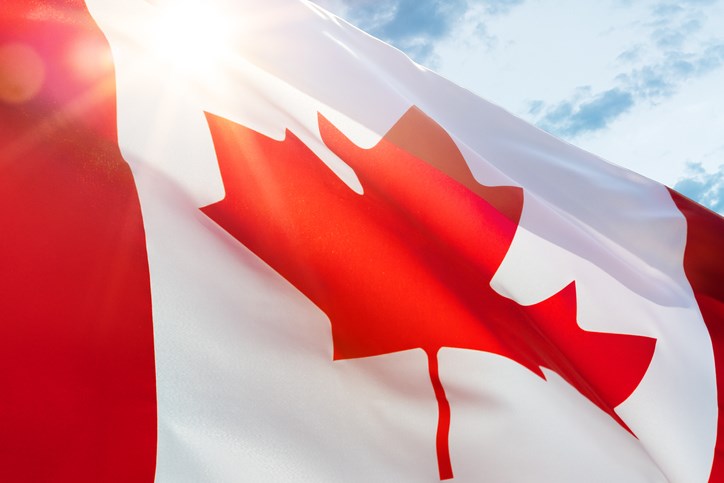Several Canadian provinces recently marked the second anniversary of the first cases of COVID-19 being identified.
After the Omicron variant forced Canadians to stay away from family and friends, our views on the pandemic are now slightly better . Just over half of Canadians (52%, up five points) told Research Co. and Glacier Media that the worst of COVID-19 is “behind us,” while about three in 10 (29%, down four points) believe it is “ahead of us.”
At the start of 2022, the numbers do not buttress the narrative of a divided country that has been pushed relentlessly by the loudest of complainers. We continue to see 85% of Canadians referring to COVID-19 as “a real threat,” and a similar proportion (84%, up one point) voicing support for requiring all customers or visitors entering an indoor premise to wear a mask or face covering while inside. In addition, more than seven in 10 Canadians (72%, down four points) are wearing a mask every time they go out.
The concept of “vaccine passports” – allegedly the detonator for a protest that reached Ottawa this past weekend and that somehow combined the worst elements of the Occupy Movement and the Tea Party – is still endorsed by significant majorities of Canadians. More than three in five are in favour of the certificates for travel to other countries (70%, down three points), to other provinces (68%, down three points) and within the same province (62%, down two points).
In addition, practically two-thirds of Canadians continue to believe that “vaccine passports” are a good idea for people who want to go to live sporting events (69%, down two points), visit gyms or fitness facilities (68%, down three points), go to live concerts (also 68%, down three points), attend the cinema or theater (67% down five points) or work at an office (65%, down three points). Support may be lower than it was in December, but certainly not at a level that would suggest Canadians are ready to carry on as if the pandemic had never arrived.
This does not mean that Canadians are remarkably content with their political leaders. Satisfaction with the way the federal government is managing COVID-19 fell by seven points to 56%, with particularly severe drops in Quebec (from 70% to 58%) and British Columbia (from 64% to 54%). Municipal governments across the country also experienced a seven-point drop (from 64% to 57%).
Provincial governments experienced an even more drastic plunge, with the nationwide average shedding 11 points to wind up at 51%. This time, the four most populous provinces experienced a significant trust deficit. Satisfaction fell from 56% to 51% in Ontario. Alberta remains at the bottom of the standings with 33%, down nine points.
British Columbia’s government posted its lowest rating of the entire pandemic at 60%, down eight points. Still, the biggest shock is observed in Quebec, where the notion of taxing the unvaccinated had an immediate impact. Only 55% of Quebecers are satisfied with the way the provincial government is managing the pandemic, down 17 points since December.
Across saπ˙º ¥´√Ω, 44% of residents (down two points ) think the measures that are in place in their province to deal with COVID-19 are correct for the situation. Similar proportions of Canadians would like to do more (27%, down two points) or do less (23%, up four points).
The divide is evident in two provinces where, just a few months ago, more than seven in ten residents were happy with how the pandemic was being managed. In Quebec, 34% of residents think the provincial government’s measures go too far. In British Columbia, 27% of residents think not enough has been done – lower than the huge number of disaffected Albertans (42%) but still noteworthy.
Compared to May 2021, at a time when vaccination rollouts were starting to be implemented, fewer Canadians are looking at their provincial governments with full confidence. Fewer residents trust them to respond to a natural disaster (57%, down three points), establish public health guidelines (55%, down three points), release accurate information (53%, down eight points), release complete information (51%, down five points), ensure the sustainability of the health care system (50%, down five points) and spend tax dollars wisely (38%, down five points). All of these indicators are down, showing how difficult it has become to explain what is happening and what may lie ahead.
The proportion of Canadians who regard the pandemic as a real threat has not changed. While public support for “vaccine passports” is down slightly, more than four in five Canadians endorse having to wear a mask inside a store. The noticeable decline this month is not behavioural. It is purely political.
Fewer Canadians are happy with Ottawa, and provincial governments see significantly lower scores this month for different reasons. It is clear that there is no one-size-fits-all solution to engaging with the public as the pandemic nears its third year of existence. In Quebec, people believe the government overreacted. In British Columbia, more than a quarter of residents want a seemingly popular administration to do more.
Mario Canseco is president of Research Co.
Results are based on an online study conducted from January 28 to January 30 among 1,000 adults in saπ˙º ¥´√Ω. The data has been statistically weighted according to Canadian census figures for age, gender and region. The margin of error, which measures sample variability, is plus or minus 3.1 percentage points, 19 times out of 20.





